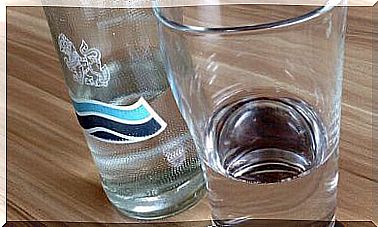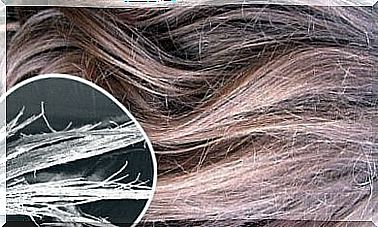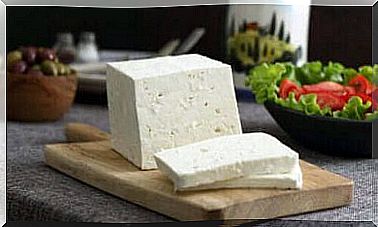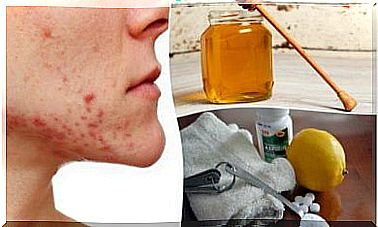Important Aspects Of Skin Care In A Newborn Baby
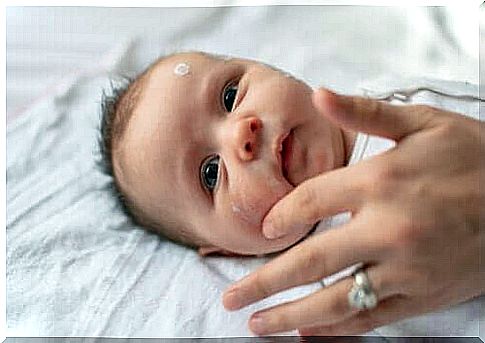
Knowing a little about skin care in a newborn baby is crucial for any parent. As the skin of healthy babies forms a resistant barrier, it continues to develop for at least the first year of life.
As a consequence, the sensitivity to dryness and irritation from external factors is greater than at other ages. Too much heat and cold can therefore cause allergic reactions. Some products may even have an aggressive reaction.
Continue reading to learn more about skin care in a newborn baby.
Skin care in a newborn baby
Firstly, it is important that soaps and moisturizers used on the baby are well tolerated and do not change the stratum corneum (the outermost layer of the epidermis). After birth, the skin is sensitive and exposed to factors that can cause the skin barrier to break down.
This includes the following:
- Spit
- Nasal secretions
- Urine
- Stools (including fecal enzymes)
- Dirt
Due to daily exposure to these factors , it is important to ensure optimal cleansing of the skin and adequate protection of the baby’s skin barrier. To do this, we recommend that you practice the principles we will talk about below.
Skin care in a newborn baby: hygiene
A newborn baby’s skin hygiene should start when body temperature has stabilized. At birth, the pH of the skin is neutral. Later it gets sour.
The use of alkaline soaps causes a temporary increase in pH and predisposes the child to infection and irritation. For this reason, neutral, acid-free and perfume-free soaps in minimal doses are recommended.
During the first two weeks , wash your baby gently and with warm water only. Excessive temperatures, excessive use of soaps and too frequent or long baths, as well as a few more things, can contribute to dry skin (irritating contact dermatitis), according to studies from Pediatric Dermatology.
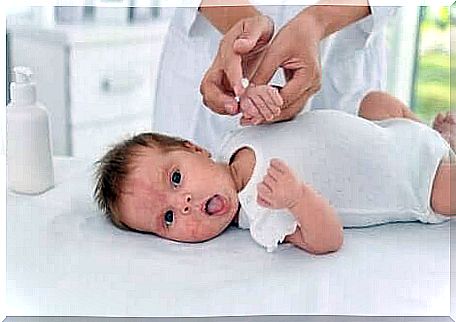
Temperature
To ensure good skin care in a newborn baby, you must consider the temperature of the baby’s surroundings. This is because too high a temperature can lead to sweating or hyperthermia. Similarly, if it is too cold, it can lead to hypothermia or panniculitis.
This is why you need to ensure proper protection against temperature changes, especially in summer and winter. According to information provided by the American Academy of Pediatrics , babies under six months should be kept away from direct sunlight as much as possible.
Antiseptic solutions
The use of products containing antiseptics to clean healthy skin is not guaranteed. This is because it causes changes in the cutaneous microbiological ecosystem and contributes to the spread of other types of microorganisms.
The skin can also easily absorb the alcohol, which can lead to burns or changes in the skin’s pH.
Moisturizers
Moisturizers can be used as part of the care of newborn skin. However, this only applies as long as they have the right formula for use on babies. Furthermore, they can help improve the skin’s protective barrier after a bath. It is even recommended to use them twice a week.
To avoid occlusive effects, it is ideal to apply a thin layer to prevent it from accumulating in the skin folds. Otherwise, as described in a publication in The Journal of Investigative Dermatology, thermal deregulation and bacterial colonization may occur.
Care of the navel
The last part of the umbilical cord usually falls off between 5 and 15 days after birth. This can be considered a wound, and can therefore be a possible gateway for bacteria.
You should therefore keep the stump dry and clean, without gauze or protection around it. It is also recommended to wear loose clothing and avoid covering the area around the navel with the diaper. In this case , the use of an antiseptic is recommended and you should apply it at each diaper change.
Care of the skin around the diaper
Diaper rash is common and can affect most babies at least once. The closed environment of the diaper consists of a complex interplay between factors with harmful potential. In this regard, a publication in the Indian Journal of Pediatrics emphasizes the importance of keeping the area clean and dry.
When moisture is kept in the diaper for a long time, the friction increases. As a result, skin macerations occur in addition to more permeability and microbial growth.
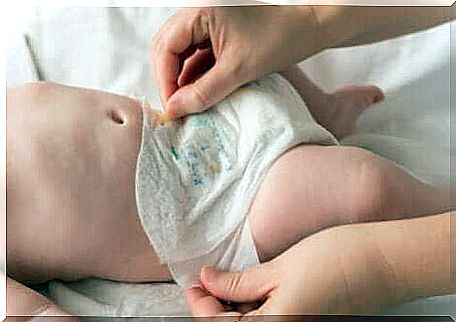
A summary of skin care in a newborn baby
The skin of a newborn baby is more delicate because the protective barrier is not fully developed. It is therefore important to clean with the utmost hygiene and make sure you use the most suitable products.
To summarize, you have a responsibility to take care of your baby’s skin health and reduce the risk of allergic reactions or infections. You should also consider aspects such as temperature and proper use of antiseptics and moisturizers.



